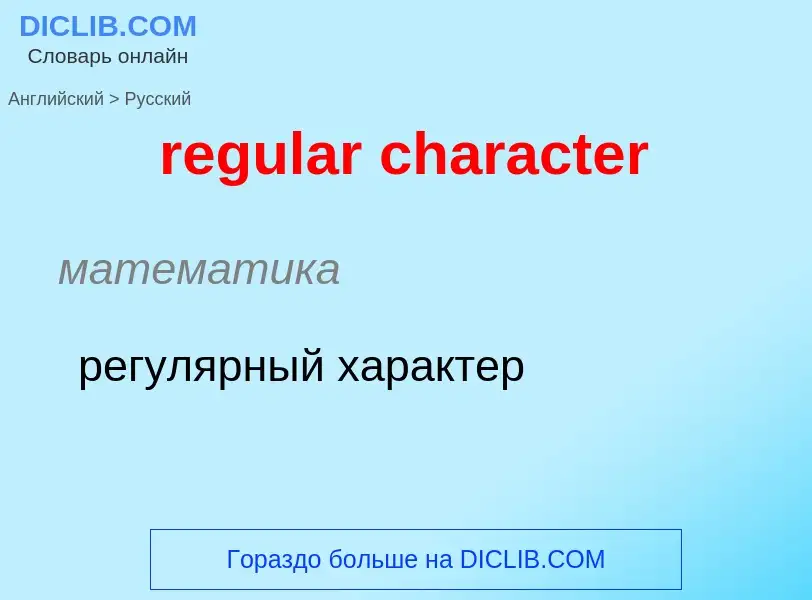Traducción y análisis de palabras por inteligencia artificial ChatGPT
En esta página puede obtener un análisis detallado de una palabra o frase, producido utilizando la mejor tecnología de inteligencia artificial hasta la fecha:
- cómo se usa la palabra
- frecuencia de uso
- se utiliza con más frecuencia en el habla oral o escrita
- opciones de traducción
- ejemplos de uso (varias frases con traducción)
- etimología
dynamic personality ‹character› - traducción al ruso
математика
регулярный характер
общая лексика
второстепенный признак
Wikipedia
In psychology, trait theory (also called dispositional theory) is an approach to the study of human personality. Trait theorists are primarily interested in the measurement of traits, which can be defined as habitual patterns of behaviour, thought, and emotion. According to this perspective, traits are aspects of personality that are relatively stable over time, differ across individuals (e.g. some people are outgoing whereas others are not), are relatively consistent over situations, and influence behaviour. Traits are in contrast to states, which are more transitory dispositions.
In some theories and systems, traits are something a person either has or does not have, but in many others traits are dimensions such as extraversion vs. introversion, with each person rating somewhere along this spectrum.
Trait theory suggests that some natural behaviours may give someone an advantage in a position of leadership.
There are two approaches to define traits: as internal causal properties or as purely descriptive summaries. The internal causal definition states that traits influence our behaviours, leading us to do things in line with that trait. On the other hand, traits as descriptive summaries are descriptions of our actions that do not try to infer causality.

![facets]] of openness, agreeableness, and conscientiousness (from Matthews, Deary & Whiteman, 2003) facets]] of openness, agreeableness, and conscientiousness (from Matthews, Deary & Whiteman, 2003)](https://commons.wikimedia.org/wiki/Special:FilePath/Factors.jpg?width=200)
![Four ''[[commedia dell'arte]]'' characters, whose costumes and demeanor indicate the [[stock character]] roles that they portray in this genre. Four ''[[commedia dell'arte]]'' characters, whose costumes and demeanor indicate the [[stock character]] roles that they portray in this genre.](https://commons.wikimedia.org/wiki/Special:FilePath/Four Commedia dell’Arte Figures claude-gillot.jpg?width=200)
